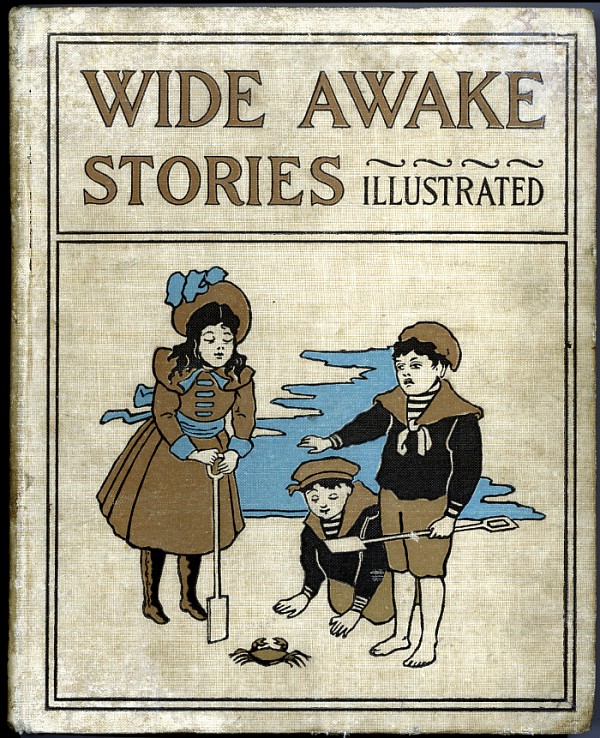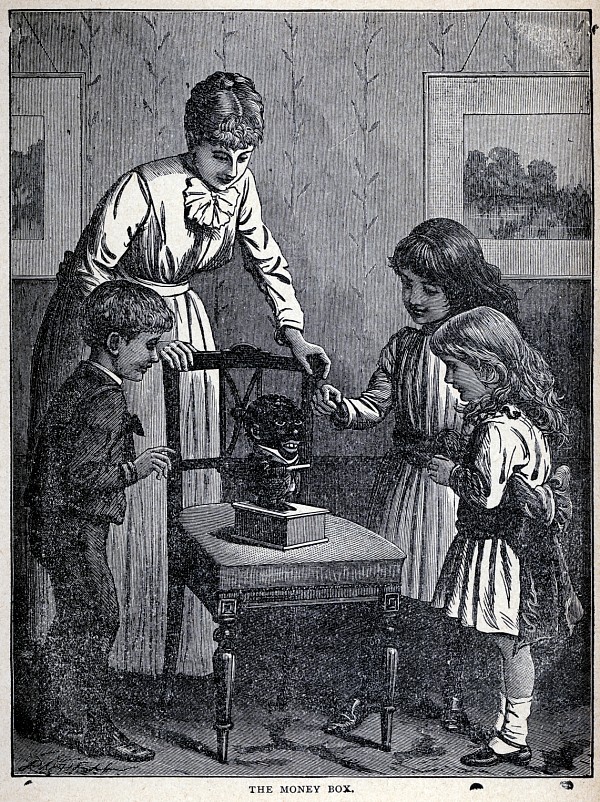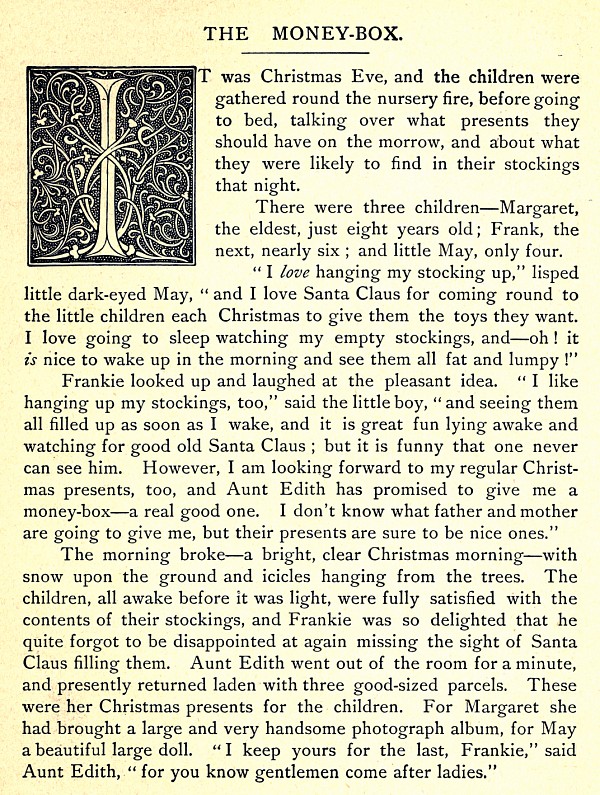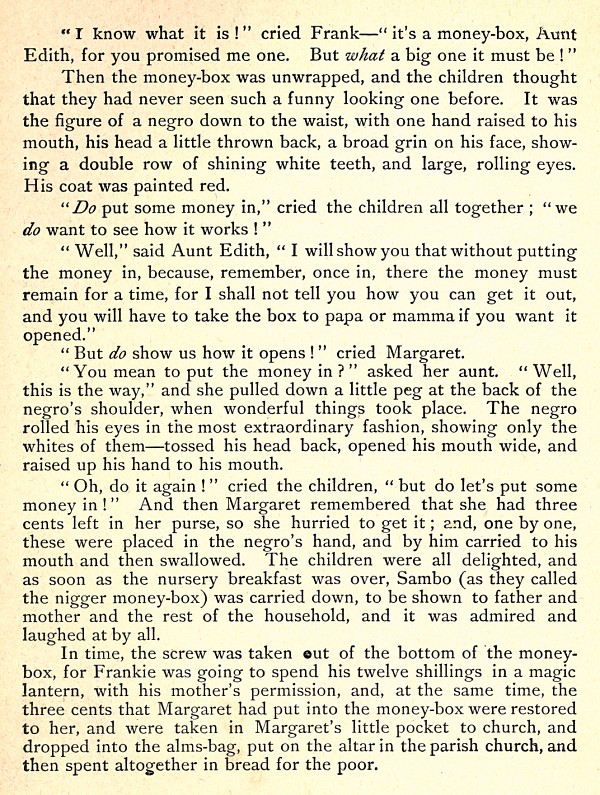|
Raymond Fink
December 25, 1903
From Sunday School
WIDE
AWAKE STORIES
ILLUSTRATED
THE MONEY-BOX
It was Christmas Eve,
and the children were gathered round the nursery fire, before going to bed,
talking over what presents they should have on the morrow, and about what
they were likely to find in their stockings that night.
There were three children -
Margaret, the eldest, just eight years old; Frank, the next, nearly six; and
little May, only four.
“I love hanging my stocking up,” lisped little dark-eyed May, “and I
love Santa Claus for coming round to the little children each Christmas to
give them the toys they want. I love going to sleep watching my empty
stockings, and-oh! it is nice to wake up in the morning and see them all fat
and lumpy!”
Frankie looked up and laughed at the pleasant idea. “I like hanging up
my stockings, too,” said the little boy, “and seeing them all filled up as
soon as I wake, and it is great fun lying awake and watching for good old
Santa Claus; but it is funny that one never can see him. However, I am
looking forward to my regular Christmas presents, too, and Aunt Edith has
promised to give me a money-box-a real good one. I don't know what father
and mother are going to give me, but their presents are sure to be nice
ones.”
The morning broke - a bright, clear Christmas morning - with snow upon
the ground and icicles hanging from the trees. The children, all awake
before it was light, were fully satisfied with the contents of their
stockings, and Frankie was so delighted that he quite forgot to be
disappointed at again missing the sight of Santa Claus filling them. Aunt
Edith went out of the room for a minute, and presently returned laden with
three good-sized parcels. These were her Christmas presents for the
children. For Margaret she had brought a large and very handsome photograph
album, for May a beautiful large doll. “I keep yours for the last, Frankie,”
said Aunt Edith, “for you know gentlemen come after ladies.”
“I know what it is!” cried Frank – “it's a money-box, Aunt Edith, for
you promised me one. But what a big one it must be!”
Then the money-box was unwrapped, and the children thought that they
had never seen such a funny looking one before. It was the figure of a negro
down to the waist, with one hand raised to his mouth, his head a little
thrown back, a broad grin on his face, showing a double row of shining white
teeth, and large, rolling eyes. His coat was painted red.
“Do put some money in,” cried the children all together; “we do want to
see how it works!”
“Well,” said Aunt Edith, “I will
show you that without putting the money in, because, remember, once in,
there the money must remain for a time, for I shall not tell you how you can
get it out, and you will have to take the box to papa or mamma if you want
it opened."
“But do show us how it opens!” cried Margaret.
“You mean to put the money in?” asked her aunt. “Well, this is the
way,” and she pulled down a little peg at the back of the negro's shoulder,
when wonderful things took place. The negro rolled his eyes in the most
extraordinary fashion, showing only the whites of them - tossed his head
back, opened his mouth wide, and raised up his hand to his mouth.
“Oh, do it again!” cried the children, "but do let's put some money
in!” And then Margaret remembered that she had three cents left in her
purse, so she hurried to get it; and, one by one, these were placed in the
negro's hand, and by him carried to his mouth and then swallowed. The
children were all delighted, and as soon as the nursery breakfast was over,
Sambo (as they called the n***** money-box) was carried down, to be shown to
father and mother and the rest of the household, and it was admired and
laughed at by all.
In time, the screw was taken out of the bottom of the money-box, for
Frankie was going to spend his twelve shillings in a magic lantern, with his
mothers permission, and, at the same time, the three cents that Margaret had
put into the money-box were restored to her, and were taken in Margaret’s
little pocket to church, and dropped into the alms-bag, put on the altar in
the parish church, and then spent altogether in bread for the poor.
|





